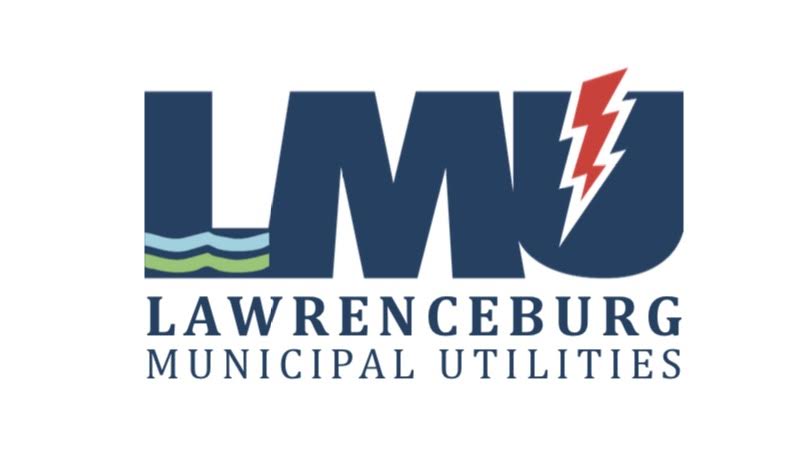Help Protect Our Drinking Water Resources
Lawrenceburg Municipal Utilities, to fulfill the State of Indiana’s Wellhead Protection Rule, is updating its Wellhead Protection Plan. The plan involves sharing information with local residents and government, mapping the wellhead protection area (the area where underground water is pumped for public use), and identifying potential sources of contamination. This information will be used to help protect underground drinking water by managing the area to prevent contamination, and by having a contingency
plan in case of an emergency spill or leak. Please visit our website at www.thinklawrenceburg.com to find out more about how you can protect our drinking water resources.
Lawrenceburg Municipal Utilities, to fulfill the State of Indiana’s Wellhead Protection Rule, is updating its Wellhead Protection Plan. The plan involves sharing information with local residents and government, mapping the wellhead protection area (the area where underground water is pumped for public use), and identifying potential sources of contamination. This information will be used to help protect underground drinking water by managing the area to prevent contamination, and by having a contingency
plan in case of an emergency spill or leak.
What is a potential contamination source? You may have a few on your property. A potential contaminant is anything that might get into your drinking water that could cause health problems. A source is
a facility or an activity that could release such a contaminant. While soil serves as a filter for many things that might otherwise enter the groundwater, it is not capable of removing everything.
Examples of potential contaminant sources are:
Leaking Underground Storage Tanks – are potential sources of oil, gasoline and diesel fuel contamination. All tanks that are out of service should be removed and all new tanks should be constructed in accordance
with 329 IAC 9.
Residential Lawns and Agricultural Areas – are sources of fertilizers, weed killers, and pesticides that can run off and seep into soils, potentially contaminating ground and surface waters. Livestock manure can also be a
source of bacteria and nitrogen that may contaminate drinking water. Responsible use of chemicals includes limiting amounts used, careful handling, proper storage, and reporting spills to the proper authorities
identified in the Wellhead Protection Plan. All pesticide use, application, storage, mixing, loading, transportation, and disposal must comply with IC 15-3-3.5 and 3.6.
Automotive Maintenance – can contaminate waters if waste materials such as paints, cleaning solvents, used oil, antifreeze, and brake fluid are not properly disposed of. These materials should not be poured on the
ground or down drains. Recycling is the best management practice for these fluids. The Dearborn County Solid Waste Management District at www.Dearborncountysoilidwaste.org, (or, 812-342-2533) can be
contacted for recycling information.
Septic Systems – can discharge bacteria, nutrients, and other contaminants into ground water. Proper maintenance and repair will help to ensure the best treatment of these contaminants before discharging them into our source water. Septic systems should be inspected and serviced every three (3) years. Contact the Dearborn County Health Department at 812-537-8826 if a problem with a septic system is suspected.
Manufacturing and Industry – handle and dispose of many toxic and hazardous materials that can runoff via storm water, leaks or spills. Indiana’s Compliance and Technical Assistance Program (CTAP), at 800-988-
7901, provides confidential assistance in getting answers to compliance questions.
Abandoned wells – that have not been properly sealed present a threat to ground water. Contaminants from the surface can enter the ground water directly if spilled, leaked or poured into the abandoned well. In
Indiana, a licensed well driller must abandon wells. If you suspect your well is not properly sealed, please contact a well driller to do so. Anyone who is aware of wells that are no longer in use and may not have been
properly abandoned is encouraged to contact the Dearborn County Health Department at 812-537-8826. Information on proper abandonment procedures is available through the Indiana Department of Natural
Resources, Division of Water, at 877-928-3755.
Solid Waste Disposal Sites – legally or illegally dumped solid and hazardous waste can leach chemicals into the soil and into the groundwater below. Cleanup or remediation is necessary at many of these sites to
prevent further contamination.
Hazardous or Toxic Waste Spills – from nearby roadways, railroads, and other sources can pose a serious threat to source waters. As soon as emergency responders have been called, contaminant spills should also be reported to IDEM’s Office of Emergency Response, at 888-233-7745 (within 24 hours of a spill, sooner if possible).
If you are an owner or operator of a potential contamination source, please be aware of how such contaminants could impact the water supply. Actively look for ways to reduce the use of such contaminants. Follow best management practices when handling hazardous materials. Report spills and be prepared to capture runoff, spills, and leaks in a timely manner.
If you would like to know if you live or work in the wellhead protection area or would like to review a copy of the Lawrenceburg plan during normal business hours, our phone number is 812-532-3500. Thank
you for helping us safeguard our drinking water supply.
Lawrenceburg Municipal Utilities

